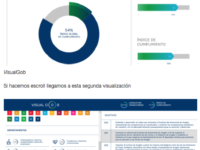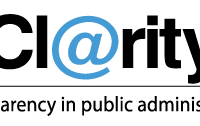PAZOS is an innovative alternative to dealing with the historically high juvenile homicide rate by using public force. It was developed because the city of Palmira was among the most dangerous cities in Colombia and the world; today we have the lowest homicide rate in the city's history. We attribute this achievement to an articulated and focused intervention, oriented to the dual functionality of targeting public spending and generating opportunities through policymaking.
Innovation Tag Opengov: impact
Bogotá Local was developed to address some of effects of the economic crisis caused by the pandemic to low-income and vulnerable families in Bogota. This is a reactive response in the short term oriented to recovery and that, in the medium and long run, will consolidate as part of the so-called "people's economy" (economía popular). It is an innovation deployed by the Secretariat of the Government and the Bogota Mayor's office to, principally, serve women, young populations and the elderly.
VisualGOB is an objective, visual and intuitive digital accountability tool that represents a breakthrough in the field of transparency. With it, it is possible to consult the government's progress almost in real time, and to follow the evolution of the 156 strategic objectives of the Aragon Government Plan. In addition, VisualGOB became a scorecard accessible to all.
GovTech Poland has developed world's first challenge based procurement model where the authors of the best idea receive a full implementation contract without the need for an additional cumbersome tender. With the goal of opening procurement to all creative individuals, the model covers the process from identification to implementation. A pilot run, tested in both central and local institutions has increased SME participation in procurement processes by an average of 1600% (in a sample of 250)…
Based on the idea that cultural consumption is important both for enriching yourself as a person and strengthening the fabric of our society, in 2016 the Italian government introduced a 500€ cultural bonus for all 18-year-old people living in Italy. Young people can spend it on cultural items and activities such as going to theatres, concerts and museums, buying books, etc. They have to register online and then spend the money through the dedicated website 18app.it, accessible from any device.…
The Administration of Rome had to decide how to use about 17 million euros for public works in the territory of the VIII District for projects concerning the environment, landscape and public green spaces, sustainable mobility and accessibility, urban regeneration and infrastructure, ideas or proposals for transversal projects. The innovation concerns the decision-making approach. For the first time, city users were involved in deciding how to allocate these resources.
A new waste management system, driven by information. Bogota has evolved its cleaning and recycling scheme, generating a profound transformation in the way in which citizens needs are met and garbage collection is managed. This model is based on the effective use of data and information. This initiative has allowed greater transparency in the actions of involved public and private organizations, an intense collaboration to provide the best service and enabling citizens active participation.
The Artech project invites artists, entrepreneurs, and developers to use public data as a "raw material" for works of art based on traditional arts or digital media. Being a well-known and respectable medium to broad audiences, we see art, as an original and fresh way to expose new audiences to the importance of open data and its relevance. This is the first time that a government agency in Israel has directly sponsored a creative and innovative experience of this kind.
Budget Monitor is a ICT tool of SAOG that promotes transparency,accountability,efficiency of public administration through increased citizen scrutiny. BM establishes two way communication with taxpayers:
1.provides sophisticated budgetary information by easy-to-interpret visualizations and dynamic graphs for free and
2.enables citizens to get involved in audit process by informing SAOG about deficiencies in public spending,providing recommendations and contribute to improved public service…
Institutions in the Greek government upload their acts and decisions on the Transparency Portal. Each document is digitally signed and assigned a unique number ensuring that acts and decisions are not valid unless published online. An open data tool enables the re-use of published information. The direct accountability brought by means of the Portal upon the administration, provides fewer opportunities for corruption since citizens and interested parties can monitor the publications and report…






